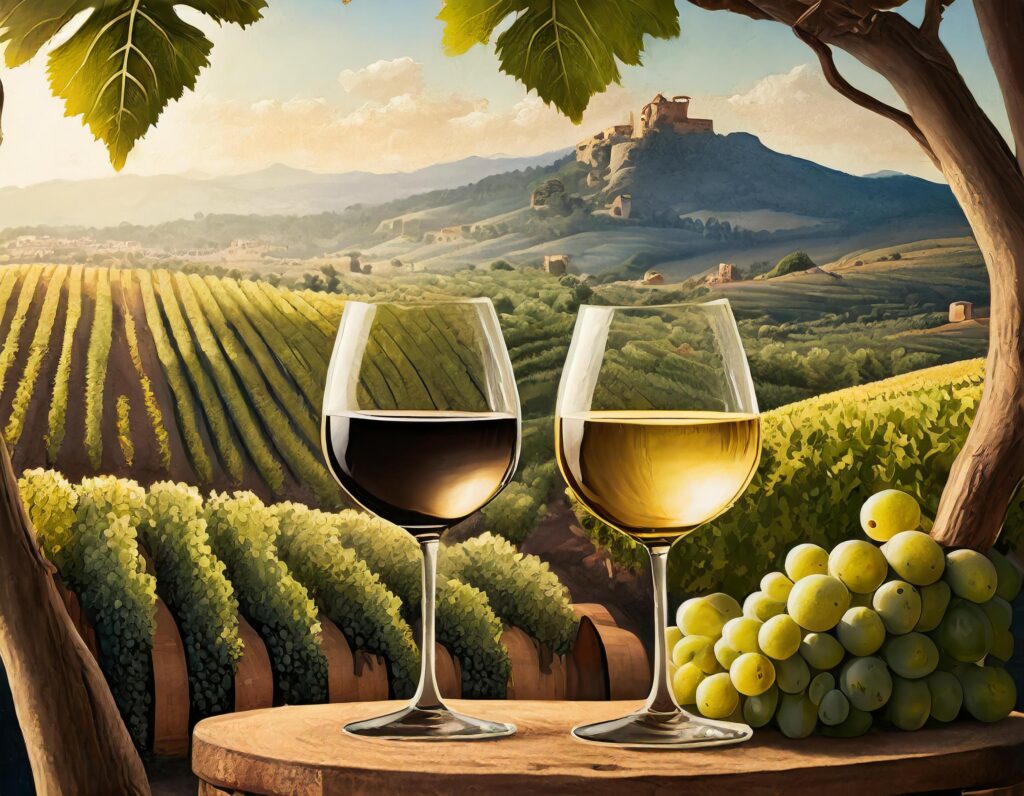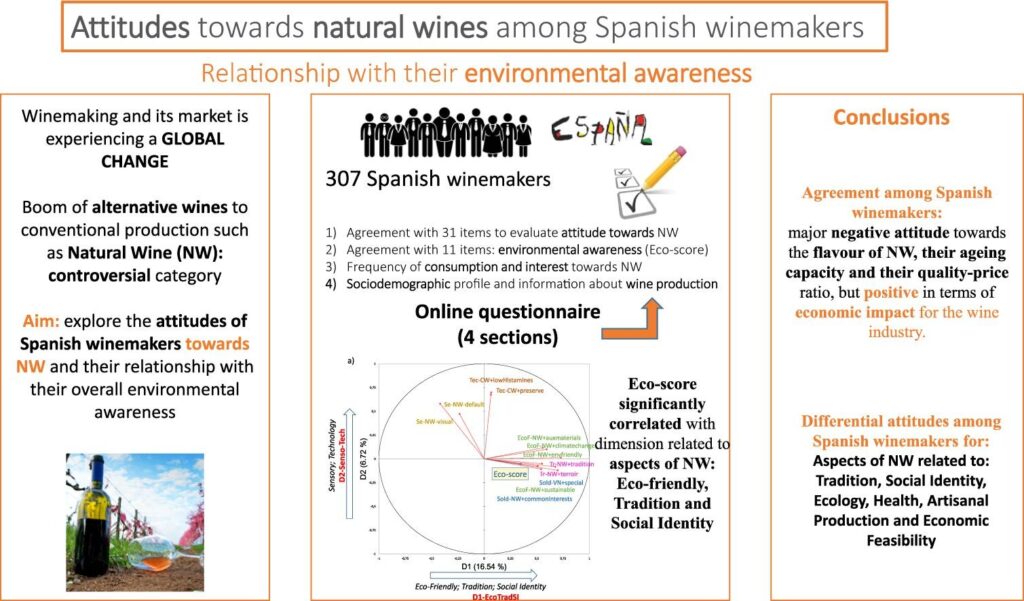Introduction
This paper provides a comprehensive overview of the shifting landscape in the wine industry, focusing particularly on natural wines (NWs). This highlights the growing consumer interest in organic foods and health and environmental concerns, which has driven significant growth in the organic food sector, including the wine industry. This document contrasts conventional wine production with alternative practices, such as organic, biodynamic, and natural wines.
The first section delves into the definition of NWs, with France being the leader in this field. France has even established a certification for NWs, named “Vin Méthode Nature”, with specific requirements, such as using organic or biodynamic grapes and avoiding certain additives and processes. However, outside of France, there is no legal definition or certification for NWs, leading to varied interpretations and standards in different countries.

The second part examines the attitudes towards NWs through various studies. French and New Zealand consumers show differing views, with French consumers having a more positive outlook. The perception of “naturalness” in wines varies between cultures, with Swiss and Australians exhibiting contrasting attitudes. The text also explores the different attributes that consumers associate with various types of wine, including NWs, in France and Italy. Studies reveal that motivations for consuming NWs vary across countries, with a notable distinction between Spanish and Italian consumers.
Finally, the document suggests that while much research has focused on consumer perspectives, there is a lack of studies on producers’ attitudes towards NWs. This study aimed to investigate the attitudes of Spanish winemakers towards NWs and how their lifestyle and environmental awareness affect these attitudes. This research could shed light on their behaviour in ecological transition and policymaking regarding NW certifications.
Research Questions:
- What are the different attitudes towards NWs among Spanish winemakers?
- How does lifestyle, particularly environmental awareness, impact attitudes towards NWs?
This paper emphasises the transition towards sustainability in the wine sector and the need to understand winemakers’ perspectives, as they are influential in the industry and policy-making regarding NW certification.

Methodology
Participants: The survey involved a convenience sample of 359 Spanish winemakers who were in contact with regional associations, NW producer associations, and wine journals. The final analysis considered 307 winemakers who met the selection criteria for wine producers in Spain. Most were male, aged between 30 and 59 years, had a university degree, and represented all major Spanish wine production regions. About 70% had over 10 years of experience, and 90% produced Protected Designation of Origin wines. Thirty% reported producing nanowires (NWs).
Ethical Approval: The study was approved by the CSIC Research Ethics Committee.
Procedure: The survey used an online questionnaire distributed through snowball sampling. Pre-tests were conducted to refine the questionnaire, which included 41 statements (31 about NWs and 10 about distractors). The participants rated their agreement on a four-point Likert scale. The questionnaire also gathered data on NW consumption frequency, interest in visiting NW wineries, reading about NWs, and the types of wine produced.
Data Analysis: 2.4.1. Internal consistency of the questionnaire was assessed using Cronbach’s α. Three out of the 31 statements were removed from the final analysis based on this evaluation. 2.4.2. Principal Component Analysis (PCA) and Hierarchical Cluster Analysis (HCA) were used to identify different attitudes towards NWs. These analyses helped group participants with similar attitudes. 2.4.3. The relationship between environmental awareness (eco-score) and attitudes towards NWs was explored. The Eco-score was calculated for each participant and compared with their attitudes using ANOVA and post-hoc tests.
All statistical analyses were performed using the XLSTAT software. The methodology aimed to rigorously assess the attitudes of Spanish winemakers towards NWs, considering various factors, such as sensory properties, health, eco-friendly practices, and economic aspects.
Discussion
The key findings from the study are as follows:
- Dimensions of Motivation: Eight dimensions were initially considered to impact winemakers’ motivations towards NWs: sensory aspects, health, eco-friendliness, economy, social identity, traditional production, technology, and social/economic trends. These were condensed into six dimensions that effectively explained Spanish winemakers’ motivations.
- General Agreement and Differences: There is consensus among winemakers on certain dimensions, such as sensory-technological aspects, economic factors, and quality/price ratios. However, significant differences exist in attitudes regarding eco-friendliness, health implications, and feasibility of artisanal production.
- Sensory Properties and Technical Aspects: Winemakers generally agree that NWs have more sensory defects than conventional wines (CWs). Despite this, they do not perceive NWs as having lower visual appeal than CWs. The potential of NWs for aging is limited due to low sulfite levels, which impacts wine preservation.
- Market Potential: Spanish winemakers recognise the growing market for NWs and the willingness of consumers, especially Italians, to pay higher prices for such wines. However, they also believe that NWs do not offer a good quality/price ratio and are concerned about flavour defects.
- Health and Safety: Differences in winemakers’ views are noted in terms of health benefits, with some clusters considering NWs to be healthier than CWs. Regarding safety, they believed that CW production can better limit harmful substances, such as histamines.
- Eco-Friendly, Tradition, and Social Identity: Attitudes vary significantly in this dimension, with a correlation found between winemakers’ environmental awareness (eco-score) and their positive attitudes towards these aspects of NW production.
- Conclusion: This study highlighted the correlation between ecological awareness and interest in NW production among Spanish winemakers. This reveals that while more environmentally conscious winemakers have a positive attitude towards NWs, concerns about their sensory properties remain. Future research should explore consumer perceptions in Spain and address the current information asymmetry in the wine market.
- Limitations: The study acknowledges its exploratory nature and limitations due to its convenience sampling method, suggesting the need for more balanced future studies.
This discussion provides insights into the complex motivations and perceptions of Spanish winemakers towards NWs, highlighting a mixture of agreement and divergence in their views, influenced by various factors, including sensory properties, market potential, health concerns, and environmental awareness.

